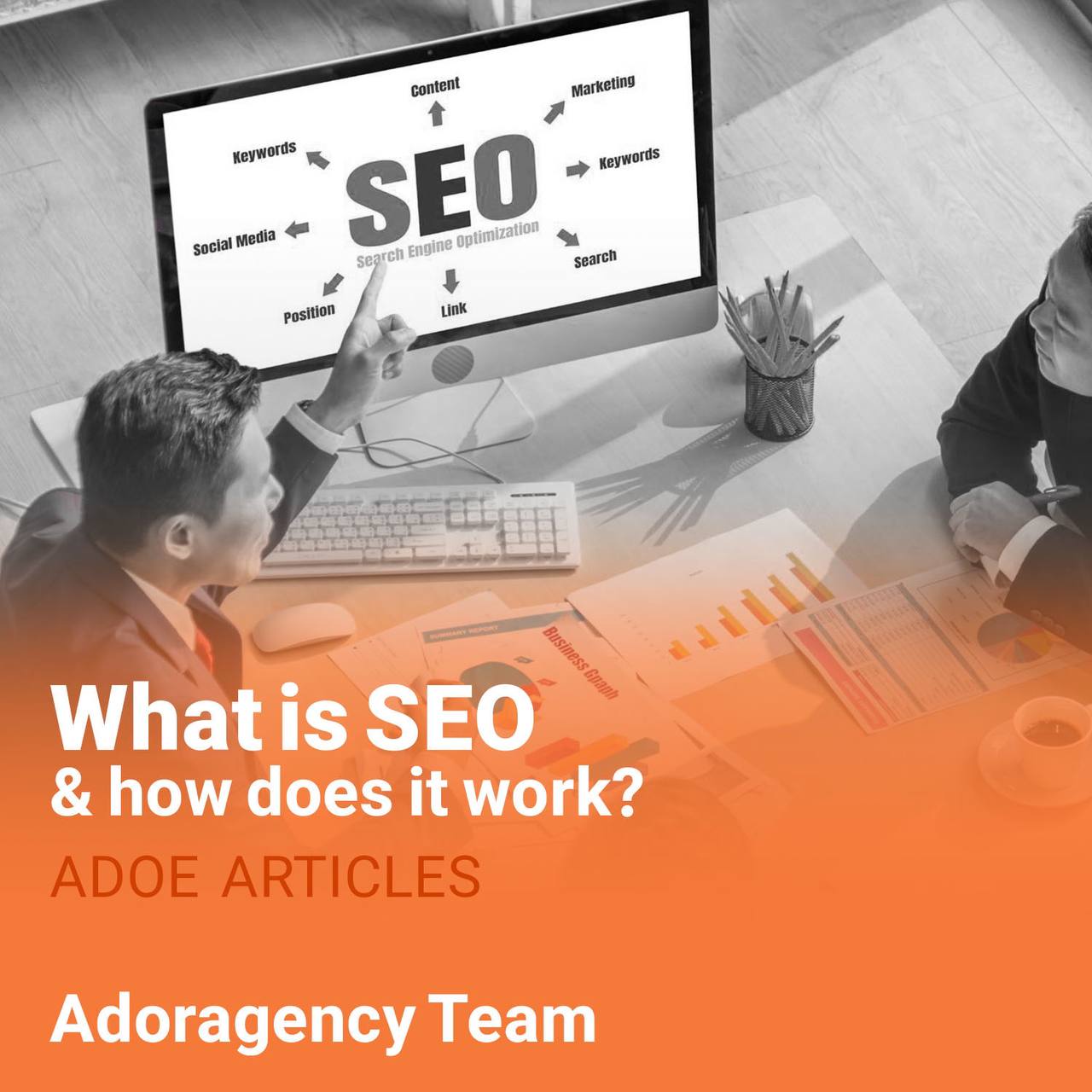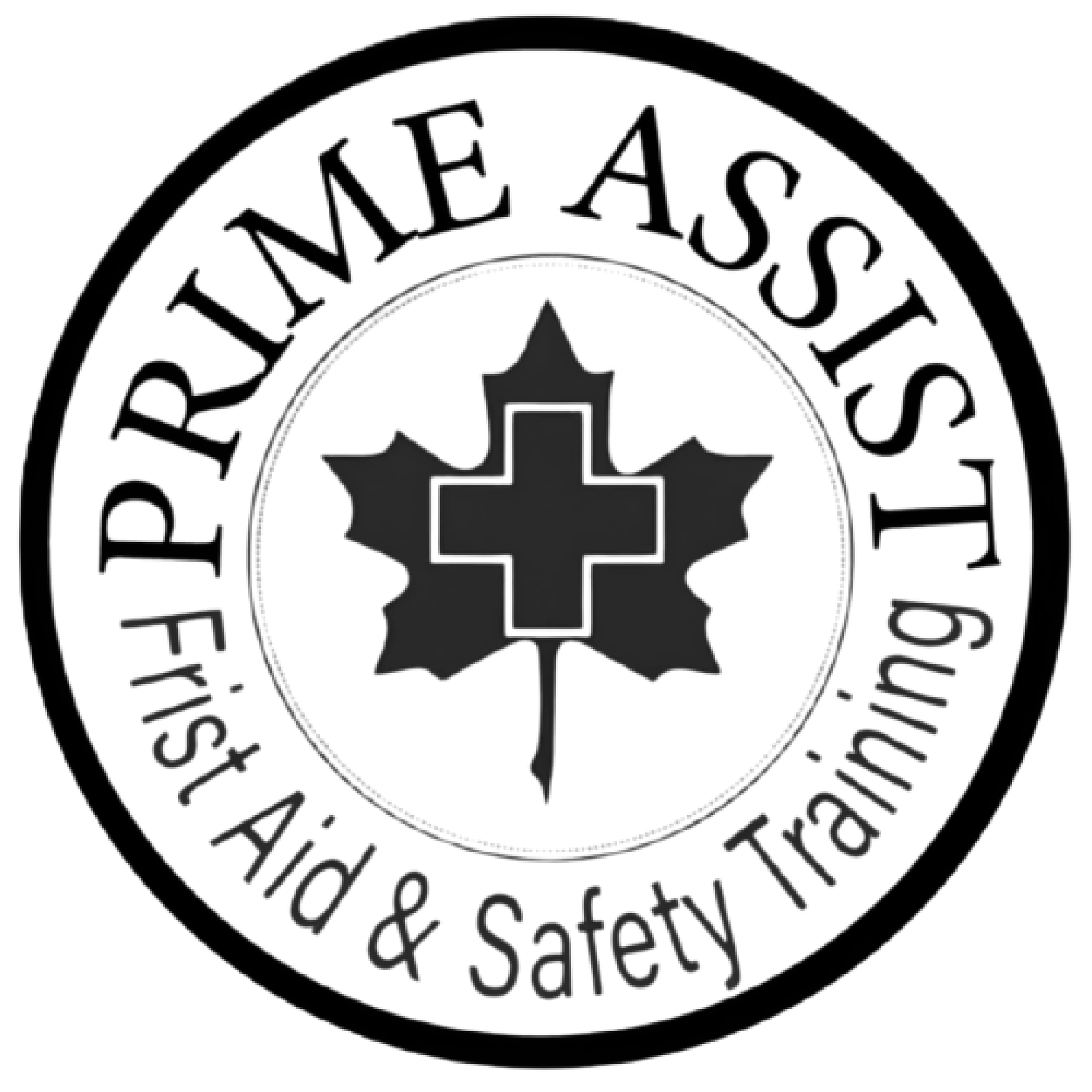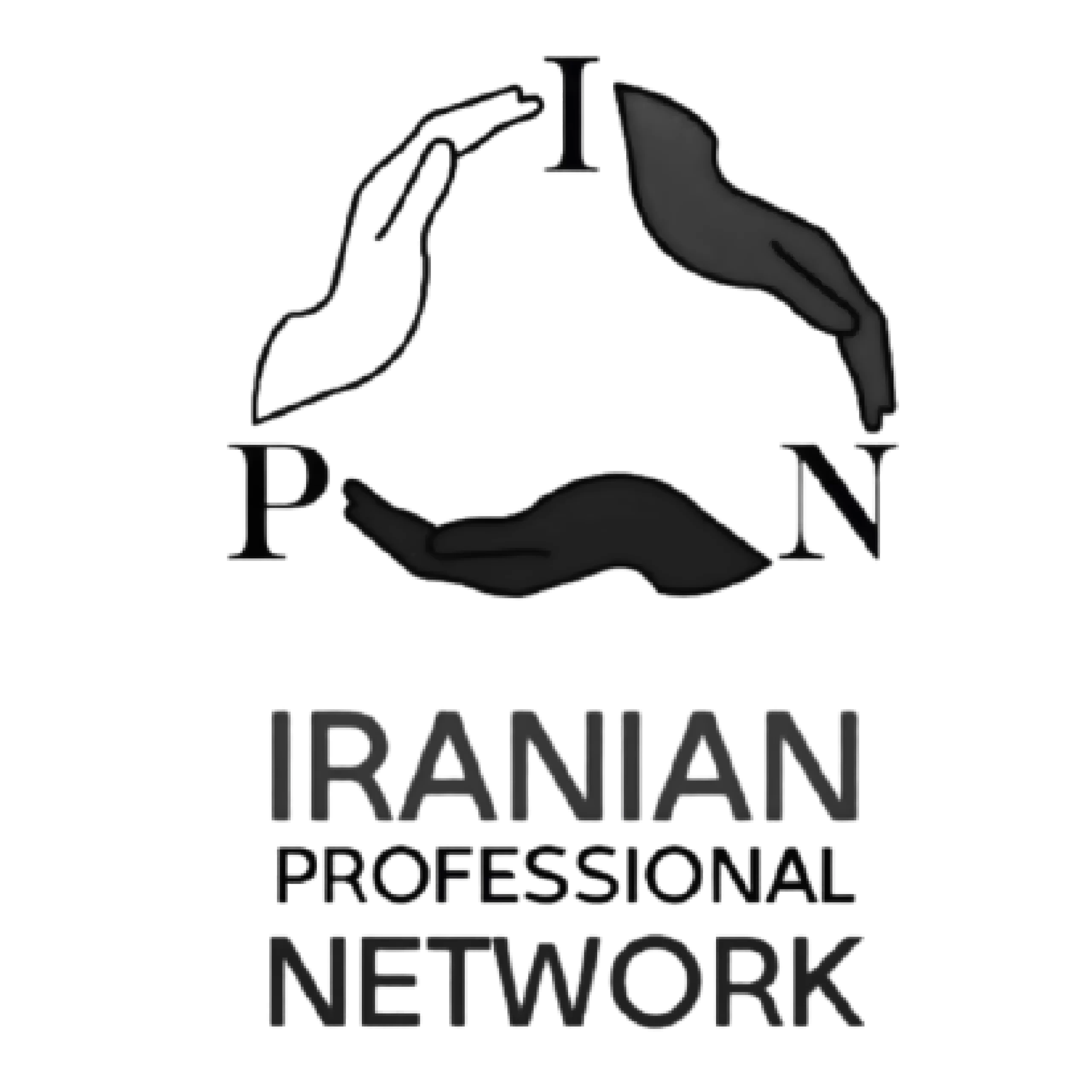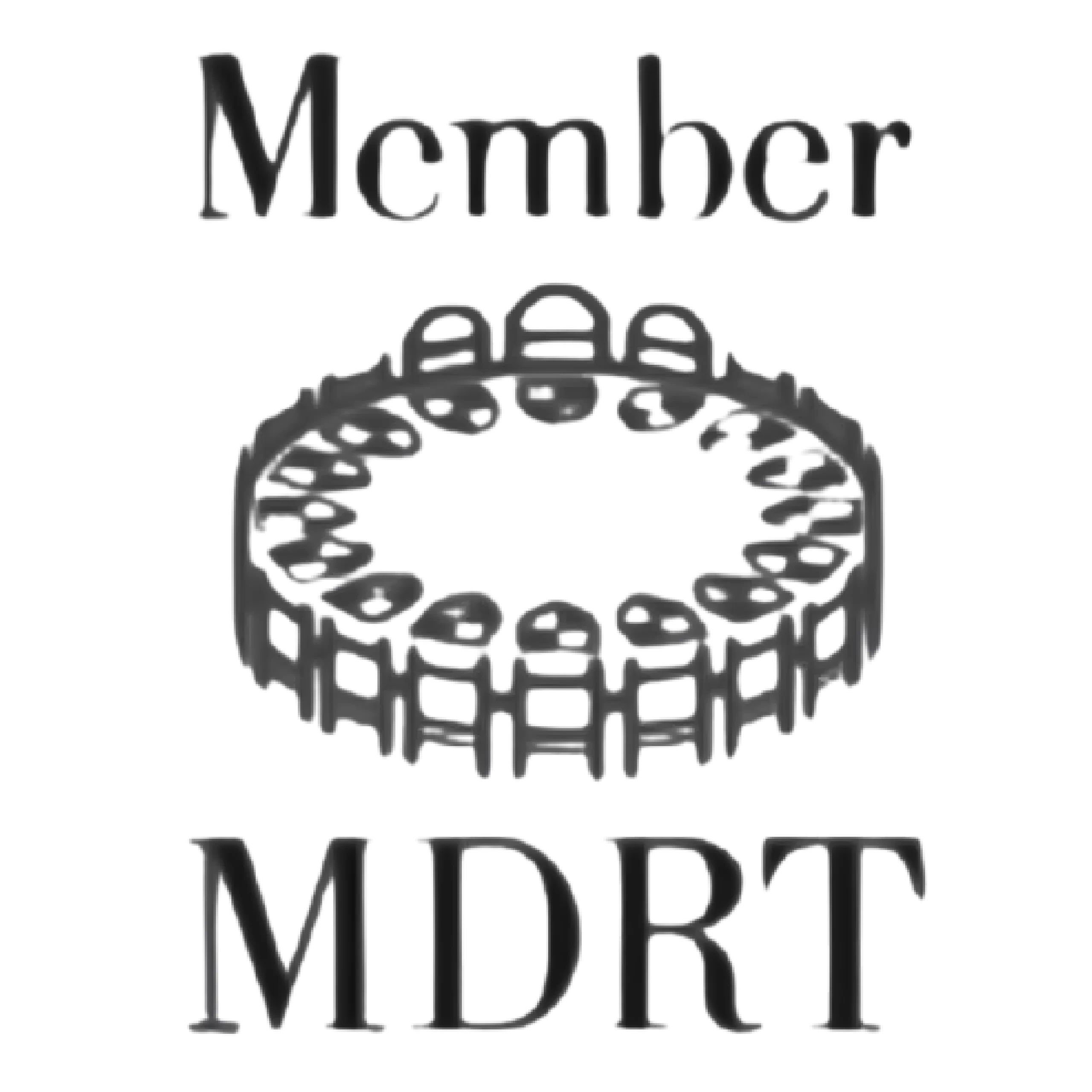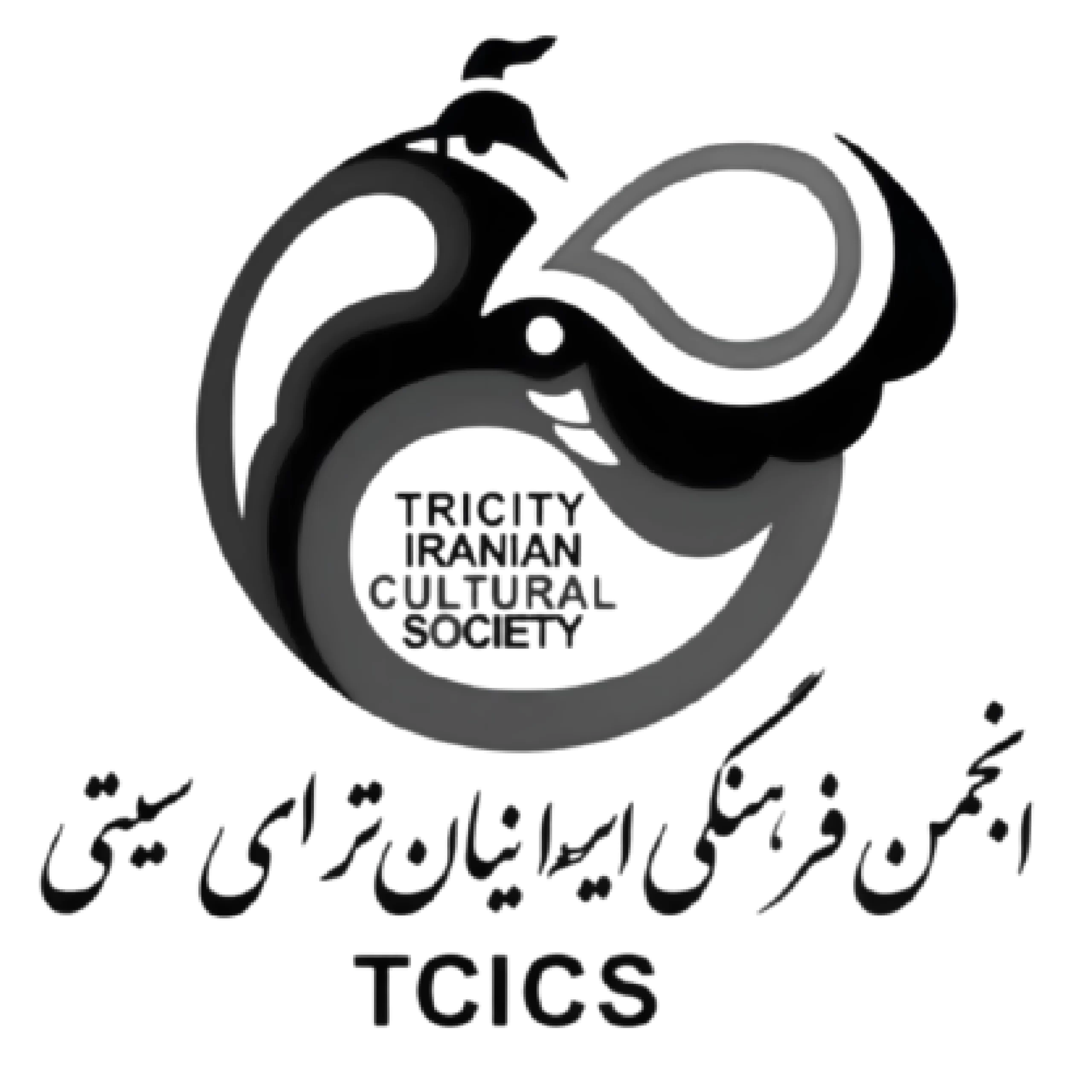Search Engine Optimization (SEO) is the practice of enhancing a website to improve its visibility on search engines like Google, Bing, and Yahoo. By optimizing various elements of a website, businesses and individuals can achieve higher rankings in search engine results pages (SERPs), which can lead to increased traffic and potentially more conversions or sales. In the rest of this article, follow us from the Ador Digital Marketing Agency blog for more information about SEO and some tips for beginners.
What is SEO?
SEO, which stands for Search Engine Optimization, is the practice of optimizing your website and its content to rank higher in search engine results and drive more organic traffic to your site.
When you search for something on Google, Bing, or other search engines, an algorithm analyzes and ranks websites based on several ranking factors. The higher your website ranks, the more visible it is to potential visitors, and the more organic traffic you’re likely to receive.
There are numerous ranking factors that search engines consider, but some of the most important ones include:
- Relevant, high-quality content: Search engines want to surface the most relevant, useful content for any given query. Creating comprehensive, informative content around topics and keywords your target audience is searching for is crucial.
- Keyword optimization: While you don’t want to overdo it, strategically including your target keywords in titles, headings, body copy, image alt text, and other key spots on your pages lets search engines know your content is relevant.
- User experience: Search engines favor websites that are fast, mobile-friendly, secure (HTTPS), and easy to navigate. A seamless user experience across devices is important.
- Quality backlinks: When other reputable websites link to your content, search engines view that as a signal that your site has valuable information to offer.
Those are just a few of the key search engine optimization basics that can help boost your website’s organic search visibility and traffic over time. Let me know if you’d like me to expand on any part of this draft.
What are the three pillars of SEO?
The three main pillars or components of SEO are:
- Technical SEO Technical SEO refers to optimizing the non-content elements of your website to allow search engines to crawl, index, and render your pages properly. This includes things like:
- Site speed and performance
- Mobile-friendliness
- Crawlability and indexability
- URL structure
- Schema markup
- Security (HTTPS)
Having a solid technical foundation is crucial for your pages to be visible to search engines in the first place.
- On-Page SEO On-page optimization refers to the content and HTML source code elements on your website pages. This encompasses:
- High-quality, relevant content
- Keyword usage and optimization
- Title tags and meta descriptions
- Header tags
- Image optimization
- Internal linking
Essentially, optimizing your on-page elements for both search engines and human users.
- Off-Page SEO Off-page SEO happens outside of your website, and one of the biggest ranking factors is link building. Some key off-page activities include:
- Getting high-quality backlinks
- Managing online reviews/citations
- Social media engagement
- Influencer and PR outreach
Building a strong off-page presence through tactics like link building can really boost your site’s authority and organic search rankings. Nailing these three core pillars – technical SEO, on-page optimization, and off-page signals – is crucial for an effective, well-rounded SEO strategy to drive more organic traffic.
Why SEO focuses on Google?
SEO focuses heavily on Google because Google is the dominant search engine, capturing around 92% of the global search engine market share as of 2022. Some key reasons why SEO is centered around Google:
1. Largest audience
With over 4 billion users, Google has by far the largest audience of any search engine. Optimizing for Google allows businesses to get maximum visibility to potential customers.
2. Most popular
Google receives around 3.5 billion searches per day, dwarfing other search engines. Its ubiquity and brand recognition make it the default search choice for most users.
What Are the Best AI Marketing Tools in 2024?
3. Best user experience
Google is known for providing the best overall search experience through constant algorithm updates aimed at surfacing the most relevant, high-quality content for users.
4. SEO software integrations
Most popular SEO tools, browser extensions, and analytics platforms are built around tracking and optimizing for Google’s algorithms and ranking factors.
5. Mobile dominance
With Android being the leading mobile operating system globally, Google has a strong mobile presence that SEOs must account for.
While other search engines like Bing, Yahoo, and DuckDuckGo exist, Google’s market dominance simply makes it the highest priority for SEO professionals looking to maximize a website’s organic search visibility and traffic potential.
What Google wants?
When it comes to SEO, the main thing Google wants is to provide the best possible search experience for its users by surfacing the most relevant, useful, and high-quality content for any given query. More specifically, here are some key things Google aims for with its ranking algorithms:
- Helpful, authoritative content Google wants to rank in-depth, informative content that directly answers a searcher’s query from credible, trustworthy sources. Thin, low-quality pages don’t make the cut.
- Great user experience Google prioritizes fast-loading, mobile-friendly websites that are easy to navigate and consume content on. Sites with a poor user experience get dinged.
- Expertise, authoritativeness, trustworthiness Google emphasizes content created by legitimate experts and authoritative sources, especially for topics like health, finance, news, and more.
- Natural language and semantics: Google is getting better at understanding natural language andQuery context/intent rather than just matching keywords.
- User signals Engagement metrics like bounce rates, dwell time, etc. give Google clues about whether users found a result satisfying or not.
- Mobile-first With mobile web usage overtaking desktop, Google now indexes and ranks the mobile version of websites first.
Ultimately, Google’s mission is to organize the world’s information and make it universally accessible and useful. Its algorithms continually evolve to cut through the noise and serve users the best possible answers and content sources.
The anatomy of search results
The anatomy of Google’s search results page consists of several key elements that both users and SEO professionals should be aware of:
- Paid Ads/Sponsored Results At the top of most search results, you’ll see a few listings with the “Ad” label. These are paid advertisements that are triggered by the search query.
- Featured Snippets Also known as “position zero”, featured snippets aim to quickly answer a query right on the results page, often pulling content from one of the top-ranking pages.
- Knowledge Panel For certain searches (people, places, things etc.), Google displays a knowledge panel on the right with key facts and information from across the web.
- Organic Results The main “10 blue links” make up the core organic search results ranked by Google’s algorithm based on relevance, authority, and other ranking factors.
- Video/Image Results Depending on the query, Google may also include relevant video thumbnails or image results among the top listings.
- People Also Ask This section suggests other commonly asked questions around the main query to guide users toward additional potentially helpful information.
- Local Pack For local-based searches, a local pack displays a map and top nearby business listings that are most relevant.
- Related Searches At the bottom, Google suggests additional related search queries that may also be of interest.
Understanding this layout and where different elements like featured snippets or local packs get placed is important for SEO. Optimizing for rich results can give pages more real estate and visibility.
Paid search vs. organic search – the differences and similarities
Paid search and organic search are two distinct strategies for driving traffic from search engines, each with its own set of differences and similarities. Let’s explore them:
Differences:
- Cost: Paid search involves paying for ads to appear at the top of search results, while organic search relies on optimizing content and earning rankings through search engine algorithms without direct payment.
- Traffic Source: Paid search traffic comes from users clicking on advertised links, whereas organic traffic comes from users clicking on natural, non-paid search results.
- Control: With paid search, you have more control over which keywords trigger your ads and what copy/messaging is displayed. Organic rankings are determined by search engine algorithms based on numerous ranking factors.
- Speed: Paid search can drive traffic to your site almost instantly after launching a campaign, while organic traffic growth from SEO is typically slower and takes more time to build momentum.
- Targeting: Paid search allows for granular audience targeting based on demographics, interests, locations, and more. Organic search visibility is more broad and relies on matching user intent with your content.
Similarities:
- Keyword Targeting: Both paid and organic search strategies involve researching and targeting relevant keywords that your audience is searching for it.
- Landing Page Optimization: Whether for ads or organic listings, it’s crucial to have optimized, relevant landing pages that provide a good user experience and align with search intent.
- Measurement and Analysis: Both channels require ongoing measurement of key metrics like traffic, conversions, and return on investment to optimize performance.
- Maintenance: Neither paid nor organic search is a “set it and forget it” strategy – both require continuous refinement, testing, and adaptation as search landscapes evolve.
While paid search provides more immediate, controlled visibility and organic is slower but “free” traffic, an effective search strategy often leverages both channels in tandem for maximum visibility and long-term success.
What is an SEO strategy?
An SEO strategy is a comprehensive plan that outlines the specific goals, tactics, and best practices for optimizing a website to improve its visibility and rankings in search engine results pages (SERPs). Here are the key components that typically make up a well-rounded SEO strategy:
- Goal Setting Defining clear, measurable objectives for SEO such as increasing organic traffic, improving rankings for specific target keywords, boosting lead generation or sales from organic search, and so on.
- Keyword Research
Identifying the most relevant, high-value keywords and topics to target based on factors like search volume, competition levels, relevance to your business, and search intent. - On-Page Optimization Optimizing website content, HTML elements (titles, meta descriptions, header tags), images, internal linking structure, and URL architecture to align with your target keywords and search engine ranking factors.
Technical SEO Audit
Ensuring your website adheres to technical best practices like site speed, mobile-friendliness, indexability, crawlability, schema markup implementation, and other factors that impact search engine accessibility.
- Content Marketing
Creating a steady stream of high-quality, SEO-friendly content (blog posts, guides, videos, etc.) aligned with your target keywords to build topical authority and expertise. - Link Building Pursuing strategies like guest posting, broken link building, digital PR, and influencer outreach to earn high-quality backlinks from authoritative, relevant external websites.
- Local SEO (if applicable) For local businesses, optimizing Google Business Profile listings, citations, reviews, and location-specific landing pages to improve visibility in local map pack results.
- Tracking & Reporting Monitoring key metrics like rankings, organic traffic, leads/conversions, and ROI using tools like Google Analytics and Search Console to measure success and refine your strategy.
An effective SEO strategy ties all of these elements together in a cohesive plan, with clearly defined processes, responsibilities, timelines, and methods for achieving your goals through search engine optimization.
What is Digital Marketing? | How it helps to grow our business?
How to set objectives for your SEO strategy?
Setting clear, measurable objectives is crucial for an effective SEO strategy. Here are some steps to follow when defining your SEO objectives:
- Align with Business Goals Start by understanding your overall business goals – whether it’s increasing online sales, generating more leads, improving brand awareness, etc. Your SEO objectives should align with and support those top-level goals.
- Define Your Target Audience Who are you trying to reach with your website and SEO efforts? Having a clear picture of your target audience will shape your keyword research and content strategy.
- Identify Conversions What actions do you want users to take on your site – make a purchase, sign up for a newsletter, request a quote? Defining your target conversions is key.
- Review Your Current Performance Analyze your current organic traffic, top landing pages, highest-performing keywords, and conversion rates to establish benchmarks.
- Set SMART Objectives Use the SMART criteria to set specific, measurable, achievable, relevant, and time-bound objectives, such as:
- Increase organic traffic by 25% over the next 12 months
- Rank in the top 3 for 10 high-value keywords by the end of the year
- Improve organic conversion rate from 1.5% to 3% within 6 months
- Define Key Performance Indicators (KPIs) Determine which metrics you’ll track to measure progress, like organic sessions, rankings, conversion rates, organic revenue.
- Get Stakeholder Buy-In Ensure your SEO objectives are aligned with your team and leadership’s priorities to secure resources and investment.
- Build Out Tactics Once objectives are set, map out the specific SEO tactics – keyword research, technical audits, content strategy, link building, etc. – to achieve each goal.
Continually referring back to your SMART objectives keeps your SEO strategy focused and enables you to pivot tactics as needed to hit your defined targets.
3 examples of SEO objectives
Here are 3 examples of effective SEO objectives:
- Increase Organic Traffic to Product Pages Objective: Drive 35% more organic traffic to the e-commerce product pages over the next 12 months. KPIs: Organic sessions to product pages, organic product pageviews, organic revenue
This aims to directly increase relevant website traffic likely to convert into sales or revenue. It’s specific, measurable through analytics, achievable based on historical data, relevant to the business goals, and time-bound to 12 months.
- Improve Keyword Rankings for High-Value Terms
Objective: Achieve rankings in the top 3 search results for our 10 highest-value commercial keywords by the end of Q4. KPIs: Ranking positions for each target keyword, organic traffic/revenue from those keywords
Focusing on improving visibility for keywords with high purchase intent and search volume can drive substantial increases in qualified organic traffic. This is a clear, achievable, commercially-valuable objective.
- Boost Organic Conversion Rates for Lead Generation Objective: Increase the organic conversion rate for high-value whitepaper downloads by 50% within 6 months. KPIs: Organic sessions on whitepaper landing pages, organic whitepaper downloads/leads, organic conversion rate
For a B2B company, improving conversion from organic traffic on high-value lead generators can be extremely impactful. This objective aligns SEO to directly impact bottom-line metrics like leads and revenue. In each case, the objectives ladder up to broader marketing/business goals, have a clear timeframe and definition of success, and can be robustly measured through website analytics platforms.
what is content marketing and why should we use it?
How to set objectives for different business types?
The specific objectives you set for your SEO strategy will depend on the type of business and its core goals. Here are some example objectives for different business types:
E-commerce Business
- Increase organic revenue from product pages by 30% year-over-year
- Rank in the top 3 for 20 high-purchase-intent keywords by end of Q4
- Grow organic traffic share of total website traffic from 40% to 60%
Lead Generation Business (B2B)
- Boost organic leads from top-of-funnel content by 25% over 6 months
- Improve rankings for 15 buyer keyword queries to page 1 by end of year
- Increase organic conversion rate for gated asset downloads by 35%
Local Service Provider
- Rank in the top 3 local pack results for 10 priority cities/service areas
- Grow total organic review volume across sites by 50% in 12 months
- Double organic landing page traffic from geo-targeted keywords
Content Publisher
- Increase total organic search traffic by 40% year-over-year
- Achieve top 3 rankings for 50 key informational queries by end of Q3
- Grow organic sessions per content article by 25% over 6 months
SaaS / Subscription Business
- Improve organic signup conversion rate by 20% within 12 months
- Rank in the top 5 for 30 category/product defining keywords
- Achieve 75% organic traffic share for branded searches
The common threads are setting quantifiable targets to grow relevant traffic, improve visibility for business-critical queries, increase conversion metrics, and measure ongoing success over set time periods. But the specific areas of focus will depend on your business model.
What is Branding and why it is so important in 2024
How to become an SEO specialist?
Becoming an SEO specialist requires a combination of knowledge, skills, and practical experience. Here are some steps you can take to develop your expertise in SEO:
- Learn the Fundamentals Start by gaining a solid understanding of SEO fundamentals, including how search engines work, ranking factors, keyword research, on-page optimization, technical SEO, link building, and analytics. You can find plenty of free online resources, blogs, and courses to learn the basics.
- Stay Up-to-Date SEO is an ever-evolving field, as search engines frequently update their algorithms and best practices change. Make a habit of following industry news, reading case studies, and attending webinars or conferences to stay current with the latest trends and techniques.
- Get Hands-On Experience Theoretical knowledge is essential, but practical experience is invaluable. Work on optimizing your own website or blog, or offer to help friends or local businesses with their SEO efforts. Get comfortable using popular SEO tools and platforms.
- Develop Technical Skills Effective SEO often requires technical skills, such as HTML, CSS, JavaScript, data analysis, and fluency with web analytics tools like Google Analytics and Search Console. Invest time in developing these skills.
- Build a Portfolio Document your SEO projects, strategies, and results. Create case studies that showcase your ability to conduct keyword research, implement on-page optimizations, build links, and drive measurable improvements in organic traffic and conversions.
- Consider Certifications While not mandatory, certifications from reputable sources like Google, Semrush, Moz, or LinkedIn can validate your SEO knowledge and skills, making you more competitive in the job market.
- Gain Industry Experience Look for entry-level SEO roles, internships, or freelance work to gain real-world experience working on SEO campaigns for clients or businesses. This hands-on exposure is invaluable.
- Continual Learning SEO is a constantly evolving discipline, so a commitment to continual learning and professional development is essential. Attend conferences, take advanced courses, and stay engaged with the SEO community.
With dedication, hands-on practice, and a willingness to keep learning, you can develop the well-rounded skillset needed to become an effective SEO specialist.
What skills do you need to become an SEO specialist?
Becoming an SEO specialist requires a combination of knowledge, skills, and practical experience. Here are some steps you can take to develop your expertise in SEO:
- Learn the Fundamentals Start by gaining a solid understanding of SEO fundamentals, including how search engines work, ranking factors, keyword research, on-page optimization, technical SEO, link building, and analytics. You can find plenty of free online resources, blogs, and courses to learn the basics.
- Stay Up-to-Date SEO is an ever-evolving field, as search engines frequently update their algorithms and best practices change. Make a habit of following industry news, reading case studies, and attending webinars or conferences to stay current with the latest trends and techniques.
- Get Hands-On Experience Theoretical knowledge is essential, but practical experience is invaluable. Work on optimizing your own website or blog, or offer to help friends or local businesses with their SEO efforts. Get comfortable using popular SEO tools and platforms.
- Develop Technical Skills Effective SEO often requires technical skills, such as HTML, CSS, JavaScript, data analysis, and fluency with web analytics tools like Google Analytics and Search Console. Invest time in developing these skills.
- Build a Portfolio Document your SEO projects, strategies, and results. Create case studies that showcase your ability to conduct keyword research, implement on-page optimizations, build links, and drive measurable improvements in organic traffic and conversions.
- Consider Certifications While not mandatory, certifications from reputable sources like Google, Semrush, Moz, or LinkedIn can validate your SEO knowledge and skills, making you more competitive in the job market.
- Gain Industry Experience Look for entry-level SEO roles, internships, or freelance work to gain real-world experience working on SEO campaigns for clients or businesses. This hands-on exposure is invaluable.
- Continual Learning SEO is a constantly evolving discipline, so a commitment to continual learning and professional development is essential. Attend conferences, take advanced courses, and stay engaged with the SEO community.
With dedication, hands-on practice, and a willingness to keep learning, you can develop the well-rounded skillset needed to become an effective SEO specialist.
why is branding so important for a business
SEO tips for beginners
- Keyword Research Identify relevant keywords that your target audience is searching for. Use tools like Google’s Keyword Planner, SEMrush, or Ahrefs to find high-volume, low-competition keywords to target.
- On-Page Optimization Optimize your website’s pages by including your target keywords in titles, headings, meta descriptions, image alt text, and body content. But don’t over-stuff – aim for a natural reading flow.
- Create Quality Content Search engines prioritize high-quality, in-depth, and engaging content. Consistently publish new blog posts, guides, or other content aligned with your target keywords.
- Mobile-Friendly Design With over 50% of web traffic coming from mobile devices, ensuring your website is mobile-friendly and loads quickly on all devices is essential.
- Optimize Images/Videos Compress images and optimize video content for fast loading. Use descriptive alt text and filenames incorporating target keywords.
- Focus on User Experience Provide a smooth, intuitive user experience by having a clean website design, clear navigation, fast load times, and engaging multimedia content.
- Internal Linking Strategically link between related pages on your website to spread link equity and allow search crawlers to better discover and understand your content.
- Local SEO (if relevant) For local businesses, claim and optimize listings on Google Business Profile, directories (Yelp, etc), and use location-based keywords in titles/content.
- Social Media Integration Share your content on social platforms to increase visibility and earn inbound links from engaged followers.
- Analyze and Refine Use Google Analytics and Search Console to track your organic traffic, top pages, rankings, and identify areas for improvement over time.
The key for beginners is focusing on foundational SEO best practices around keyword strategy, quality content, technical optimization, and consistently publishing engaging, relevant material.
What is an advertisement and why are important?
Conclusion
In conclusion, in this article of ador agency, SEO is a crucial aspect of digital marketing that focuses on improving a website’s visibility and ranking on search engine results pages. By employing various techniques such as keyword research, on-page optimization, technical SEO, off-page strategies, content creation, and enhancing user experience, businesses can attract more organic traffic and achieve greater online success. Effective SEO is an ongoing process that requires adaptability and continuous effort to stay ahead of search engine algorithm changes and maintain a competitive edge.
FAQs
1. What is SEO?
SEO (Search Engine Optimization) is the practice of optimizing websites to rank higher in search engine results and get more organic (free) traffic.
2. Why is SEO important?
SEO is crucial because most people use search engines to find information, products, and services online. The higher you rank, the more visible and accessible your website is to potential customers.
3. How long does SEO take to work?
SEO results can take several months to a year to fully materialize. It’s an ongoing process, not an overnight quick fix. However, you can see incremental improvements along the way.
4. What are the key ranking factors?
Major Google ranking factors include high-quality content, technical optimization (load speed, mobile-friendliness, etc.), authoritative backlinks, user experience signals, and optimizing for target keywords.
5. Is SEO still relevant in 2023?
Yes, SEO remains highly relevant as most web traffic comes from search engines. However, the strategies and priorities in SEO constantly evolve with search engine updates.
6. What's the difference between on-page and off-page SEO?
On-page SEO refers to optimizing content and elements on your website itself. Off-page SEO deals with promotional tactics like link building and social media marketing.

